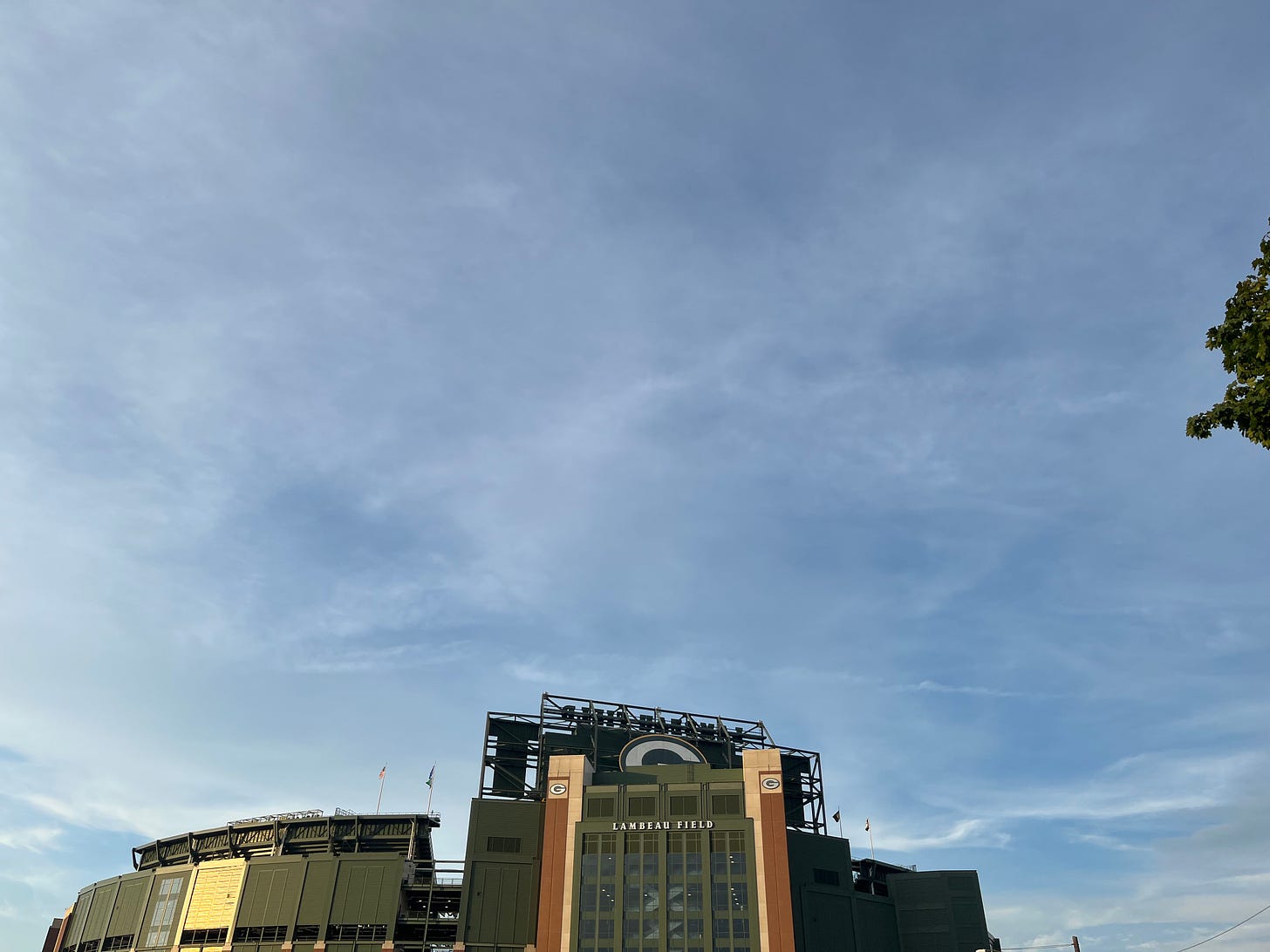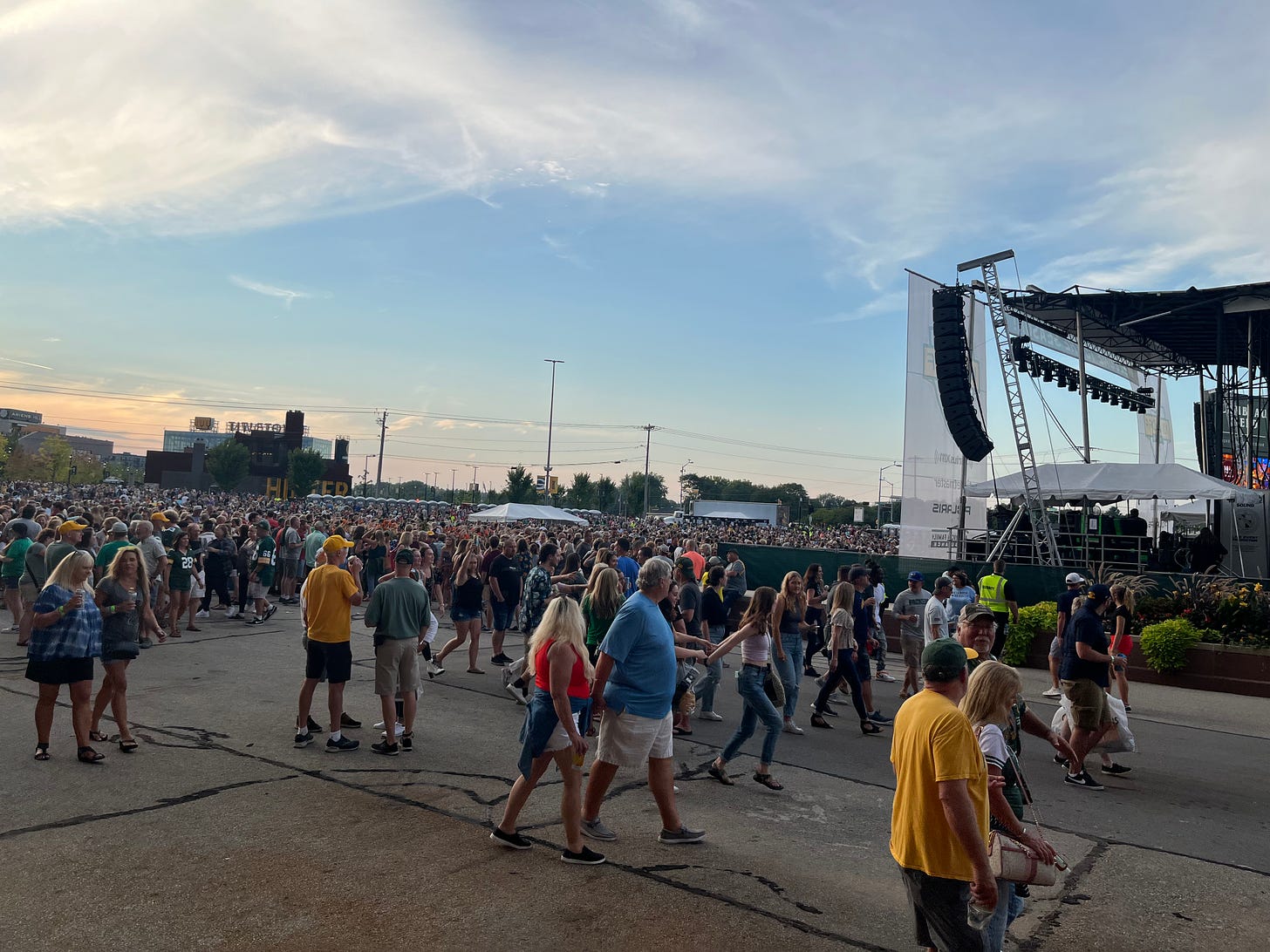The excitement of downtown Green Bay the night before the Packers’ home opener is something special. Few places can bring 70,000+ people to a stadium built among residential neighborhoods to collectively express excitement for the weekend events.
What always astounds me when I visit Lambeau Field is the diversity of people wandering through the atrium, signing up for stadium tours, and carrying bags filled with jerseys and memorabilia. Across age, gender, class, and ethnicity, a common identity is shared: Packer Fan.
Coincidentally, I’ve also been listening to friends and colleagues this past week discuss the role of civil society as a medium for bridge building.
Broadly speaking, civil society contains the substance of our communities: businesses and institutions, food pantries and pickleball courts, local parks and coffee shops, religious centers and YMCA.
In a powerful essay, Joshua Bombino and Chelsea Langston Bombino refer to civil society as a “second womb.” Speaking about the formative power of civil society, they explain how our civic life helps us make meaning of our social locations and life experiences. In return, like a mother’s womb, we reciprocally form our civil society from its institutions down to its DNA.
In a podcast conversation, Eboo Patel and Wajahat Ali also interrogate the role of civil society in formation and bridge building. Patel specifically argues that, while society is undoubtedly divided at a meta-level, this polarization is challenged by the social cooperation of our hospital system, peewee sports leagues, and the like. A progressive Muslim doctor will not refuse to treat a patient because they’re a local GOP politician; an Israeli father won’t withhold their child from playing flag football because the coach is Palestinian.
What civil society offers is an opportunity to leverage our gatherings rooted in collective identity to heal our divided communities through a recognition of our common life.
To be sure, this is not a pitch to ignore (or even worse, erase) our differences and melt into some homogenous thing called “society.” No, it is. rather an opportunity for mutual formation within the collective womb of civil society.
These spaces where folks meet across lines of difference to celebrate an event, promote the flourishing of children, and support local economies are places where we can recognize the humanity of those different from us. In the gatherings made possible by a shared love for our communities and children—even our local sports team—we meet people we otherwise would never encounter. This is a gift that we ought to make the most of.
Reading:
Learning Our Names: Asian American Christians on Identity, Relationships, and Vocation — Sabrina S. Chan, Linson Daniel, E. David De Leon, La Thao (IVP, 2022)
America’s Misguided Fascination With Royalty - Imani Perry (The Atlantic)
[T]he royals are a repository for fantasy, but also mark the mother country as different from our self-proclaimed democracy … What interests me, from an American perspective, is the collision at this moment between fantasy and reality.
Watching:
David Bently Hart Interview Rainn Wilson (Leaves in the Wind)
The Patient (Hulu)
Listening:
Out of Control - Demo Version — MARGO
It's pretty cold in here. Fever chills and fear. What do we have to hold?
Bad Juice - Lila Drew
Sip O’ Juice - Moonglow






